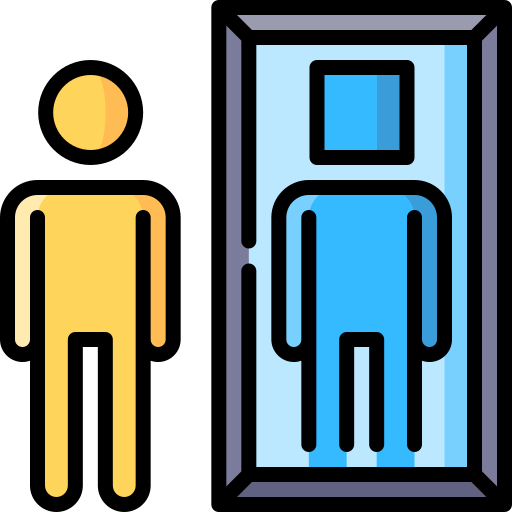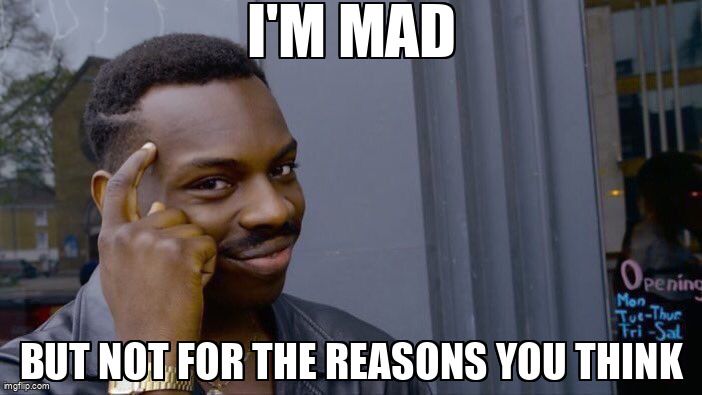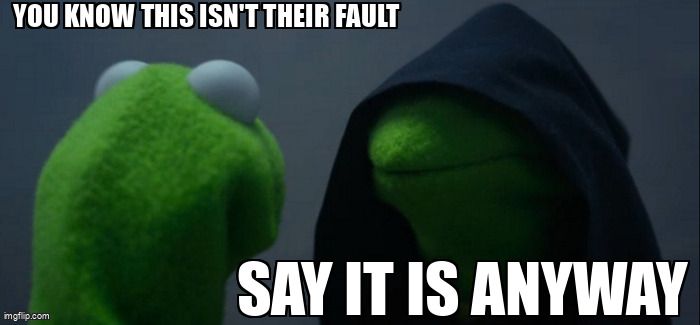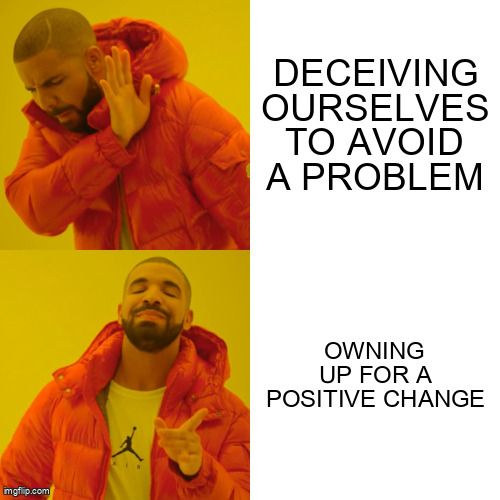Can we fix a problem we don't know we have?
Sometimes we're surprised when we witness someone who has a problem and continues to act like they don't have a problem at all.
Maybe we have a friend who is in debt but continues to rack up credit cards without a care. We may ask ourselves:
Does the person recognize that they have a problem?
If they aren't aware of their problems, will they be able to fix them?
Perhaps you've also had times in your life when you've behaved the same way.

It is difficult to detect self-deception in your thinking — but there are ways to identify if you're deceiving yourself so that you can bring more clarity and honesty into your life.
What is self-deception?
Self-deception is a broad and complex concept — but simply put, it means believing in something untrue and convincing yourself that it's true, despite all the facts and evidence.
We can deceive ourselves in all aspects of our lives. The deception can be subtle at times, but if it goes unchecked, it can:
Have negative effects on your relationships
Stunt your personal growth if it goes unchecked
We can deceive ourselves in daily life areas like:

Your finances
Not being honest about how much money you have or make
Acting like you have enough by not being financially prudent

Your social relationships
Avoiding or denying issues that are affecting relationships
Making a relationship seem worse than it is because you feel dissatisfied

Your job
Believing that you're happy with the work that you're doing and its impact — when you'd rather be doing another job entirely

Your body image
Saying you don't care about how you look to avoid showing your insecurities
Brushing off a compliment to conceal that you don't feel good about yourself
The signs of self-deception
Self-deception happens when we avoid or deny the truth.
Why would anyone want to avoid the truth?
Self-deception has its purposes.
It can be your mind's way of protecting you from painful experiences. For example, if you faced a traumatic event, you may tell yourself that the experience wasn't so bad because you survived it.
It can also be a way to block negative feelings when you don't want to be responsible for the consequences of your actions. For instance, if you agree to go out with your friends when you didn't really want to, you may be moody and cold while you're there to express your resistance.

Here are some common signs of self-deception and what they might look like.
Blame: not taking responsibility for your actions and making things someone else's fault.
Minimization: convincing yourself that things aren't as bad as they seem.
Denial: not accepting what is happening.
Justification: making excuses in response to a problem.
Projection: saying someone else or something else is the problem when you're the problem.

It can be difficult to spot self-deception in your actions, especially if you feel strong emotions about your thoughts.
If you’re not sure whether you’re operating in self-deception, you can ask yourself these questions:
"Am I seeing this clearly?"
"Is it possible that I'm causing this problem or contributing to it more than I'm willing to admit?"
What does self-deception actually look like?
Take this scenario of a father who has received multiple letters from their child’s school, asking them to come in and talk about their child’s weak performance and behavior.
The child claims that he hasn't gone to school because he is busy with work. When his father sees his child’s weak report card, he hurries off to the school in anger and tells the teachers that they're incompetent and have failed to help his son.

Quiz
What signs of self deception is the father showing? Select all that apply:
The effects of self-deception
If you go out with your friends even when you don't feel like it, your friends will sense your negative energy. They'll respond to that by acting negatively towards you, too.
If you had just told the truth about not wanting to hang out, you wouldn’t have to treat your friends badly and, in turn, be treated badly by them.

An antidote to self-deception is telling the truth and living up to your values so that you're able to live your life to the fullest.
But before you can speak the truth to others, you have to be able to see things clearly and be honest with yourself first.

Communication, trust, and growth are important in all areas of life. Self-deception can be a barrier to those things.
Take Action
Self-deception reveals that you're responsible for quality of your life. You can paint the exact picture of your life through a lens of accountability and truth. The best version of your life is on the other side of honoring the call to do the right thing for yourself and towards others.

Your feedback matters to us.
This Byte helped me better understand the topic.
